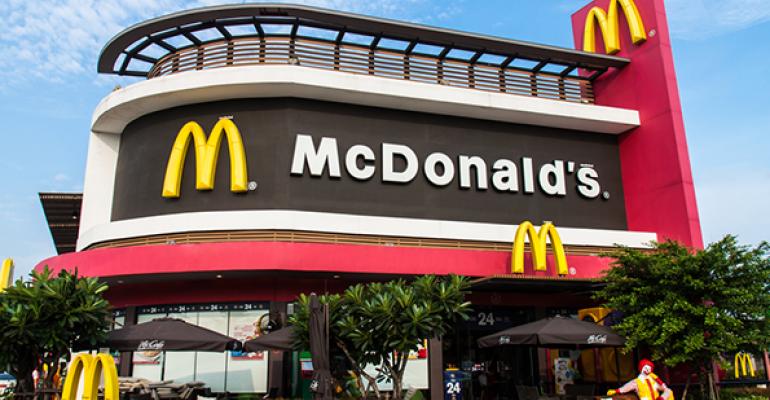McDonald’s Corp. is once again facing pressure to spin off its real estate holdings, as shareholder and hedge fund manager Larry Robbins claims the move could unlock $20 billion in value. McDonald’s owns 70 percent of its restaurant buildings and 45 percent of the land those buildings are built on at a time when net-leased real estate is highly prized.
The market reacted positively to Robbins’ suggestion, as the company’s shares rose by almost 2 percent on Monday, according to The Street.
But will McDonald’s management actually listen to the suggestion? And would it be a good idea? Earlier this year, Nation’s Restaurant News ran an article that argued that McDonald’s will never get rid of its real estate assets. The reason is that McDonald’s uses its buildings more as a landlord—renting the space to its franchisees to the tune of $6.1 billion a year and at a profit margin of 82.7 percent—than a restaurant operator. According to NRN:
“It’s not just the income, either. By controlling its real estate, McDonald’s can select the top sites regardless of how they are available, which is the best possible real estate strategy for any restaurant company. It then controls those sites, and exerts further control over its system. The company has long said that getting rid of that real estate would wreck its relationship with operators.
“Indeed, in its annual report, McDonald’s noted that its ownership of real estate along with a ‘co-investment’ by franchisees ‘enables us to achieve restaurant performance levels that are among the highest in the industry.’”
Steve Rozenblat of Seeking Alpha put forth a similar opinion in a recent write-up. He argues that McDonald’s restaurants are located on some of the most desirable intersections in many major markets, providing the company with both enviable foot traffic and significant savings on the rents it would have to pay for those sites otherwise. Converting to a REIT might provide the company with a short-term windfall, but could prove terrible for its bottom line in the long term.
“I believe that this would be a mistake, and hope that McDonald's managers have some backbone to stand up to the activist investors, who are clamoring for spinning off the real estate assets. While this may be a quick way to generate substantial cash and most likely give the stock price a pop, it would also leave the rest of the firm much weaker in the long run,” he writes.
“As a long-term investor, I don't want to trade short-term cash for long-term competitive advantage. And this is exactly what the real estate assets are to McDonald's. An enduring competitive advantage and cost savings.”
In addition, Morningstar analyst RJ Hottovy previously warned that, depending on how a REIT conversion would be organized, it might create unwelcome disruption for McDonald’s franchisees, according to Benzinga.
In the past, the company’s management has been firm about saying no to spin-off proposals. Most notably, Pershing Square Capital’s Bill Ackman asked McDonald’s to consider spinning off a portion of its real estate holdings several times in the mid-2000s, and met with a resounding “no.” At the time, MarketWatch reported McDonald’s response to Ackman as this:
“‘We continue to believe that in IPO of McOpCo will not deliver the value already being created by our current strategy,’ said Mary Kay Shaw, vice president of investor relations.”

